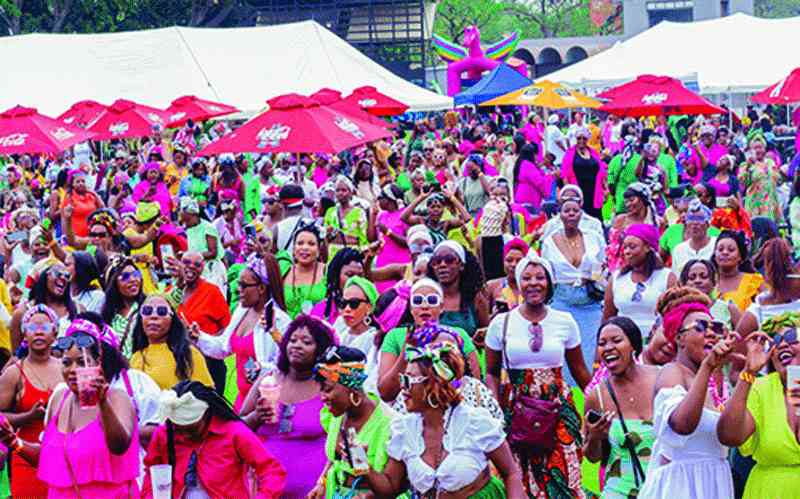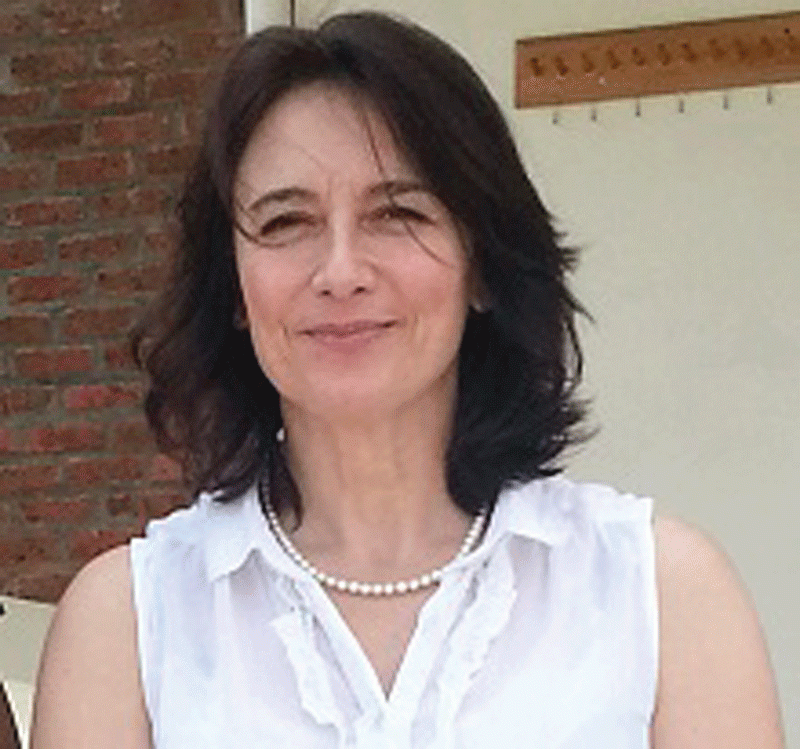
IN August 2024, Zimbabwe witnessed a ground-breaking event that resonated deeply within the hearts of women across the nation: Doek and Slay.
This gathering was not just another event; it was a celebration of womanhood, reclamation of space, and an affirmation of the need for women to come together, unwind, and recharge.
Or do whatever the hell it is they deem crucial to enhance their lives! The success of this event, hailed as its best iteration yet, has sparked conversations that challenge the status quo, particularly in a society still grappling with the vestiges of patriarchy.
The essence of Doek and Slay lies in its unapologetic embrace of women’s independence and strength, whether stated or not. In a world where women are often scrutinised for stepping outside traditional roles, this event stands as a bold declaration: we are here, we are thriving, and we will not apologise for our existence or our choices!
The backlash from some men, who feel threatened by this assertion of autonomy, is a predictable response rooted in a patriarchal framework that has long dictated the narrative around women’s roles.
However, it is crucial to recognise that the need for women-only spaces is not a rejection of men but rather an essential aspect of self-care and empowerment. Can I please get an “amen” or “go deeper mama”?
Historically, African cultures have recognised the importance of women gathering for support and rejuvenation. Traditional spaces, such as “ kutsime” or “kuchibhorani” (going to fetch water at wells or boreholes”, “kurwizi” (going to the river to bath, wash or whatever), “kumadhoiri” (crocheting), communal kitchens, gardens, and marketplaces, served as sanctuaries where women could share stories, exchange wisdom, and bond over shared experiences.
These gatherings were not merely social; they were vital for the emotional and spiritual sustenance of women. In these spaces, women found comfort in each other’s company, shared their struggles, celebrated their victories, and fortified their spirits against the challenges of life.
- Doek and Slay postponed due to Sadc summit
- No probe over Doek & Slay fake tickets scandal
- Unapologetically creating space: Power of women’s gatherings
Keep Reading
Today, as we navigate the complexities of modern life, the need for such spaces is more critical than ever. Women face unique challenges — balancing careers, family responsibilities, societal expectations, and personal aspirations.
The stressors of contemporary life can be overwhelming, and the importance of having a dedicated space to unwind, ground oneself, and replenish cannot be overstated.
Events like Doek and Slay provide precisely that: a sanctuary where women can express themselves freely, celebrate their identities, and connect with one another without the weight of judgment or expectation.
The phenomenon of women gathering is not just about socialising; it is about creating a culture of support and resilience. In these spaces, women can share their stories of triumph and adversity, fostering a sense of solidarity that is essential for empowerment.
When women come together, they create a collective strength that challenges the narratives imposed upon them. This is not about excluding men; it is about reclaiming agency and celebrating the unique experiences that women share. Moreover, the backlash from some men regarding events like Doek and Slay often reveals a deeper insecurity about the shifting dynamics of gender roles.
The fear of women becoming too independent or self-sufficient is a reflection of a societal structure that has long benefited from the subjugation of women.
When women assert their independence, it disrupts the status quo, prompting discomfort among those who have been conditioned to view women as subordinate.
This discomfort, however, should not deter women from pursuing their own paths and creating spaces where they can thrive.
It is essential to recognise that the need for women-only spaces is not a new concept; it is rooted in a long history of women supporting one another.
From traditional gatherings to modern events like Doek and Slay, the essence of these spaces remains the same: they are vital for nurturing the spirit and fostering community. The act of coming together allows women to share resources, knowledge, and experiences, creating a network of support that can uplift entire communities.
In a world where women are often pitted against one another, events like Doek and Slay challenge that narrative by promoting collaboration and camaraderie.
Women are encouraged to celebrate one another’s successes rather than compete. This shift in perspective is crucial for dismantling the patriarchal structures that have long divided women.
By creating spaces where women can uplift one another, we foster a culture of empowerment that transcends individual achievements.
Furthermore, the unapologetic nature of women’s gatherings serves as a powerful reminder that self-care is not a luxury but a necessity. In a society that often demands women to be self-sacrificing, prioritising one’s own well-being can be seen as an act of rebellion. However, it is essential to recognise that taking time for oneself is not selfish; it is an act of self-preservation. When women prioritise their health, happiness, and personal growth, they become stronger, more resilient, and better equipped to face the challenges of life.
The success of Doek and Slay is a testament to the power of women’s spaces in fostering community, resilience, and empowerment.
It is a celebration of what it means to be a woman in today’s world — a world that often seeks to diminish our voices and limit our potential.
By creating spaces where women can be unapologetically themselves, we challenge the narratives that seek to confine us and pave the way for future generations of women to thrive. The need for women-only spaces like Doek and Slay is not just about creating a momentary escape; it is about building a foundation for lasting change.
It is about reclaiming our narratives, supporting one another, and celebrating the strength that comes from unity.
As we continue to navigate the complexities of modern life, let us embrace the power of gathering, unapologetically prioritising our well-being, and fostering a culture of support that uplifts all women.
The journey toward empowerment is not a solitary one; it is a collective movement that requires courage, resilience, and an unwavering commitment to one another.
Together, we can create spaces that honour our experiences, celebrate our successes, and inspire future generations to live boldly and authentically.
Until then, we are blessed to be a blessing (#B2BAB). We were here, becoming better, making our mark, and leaving our footprint as we make the world a better place!
- Chirenje writes in her capacity as a citizen of Zimbabwe. Follow her on social media for more Lifezone with Grace conversations on Twitter: @graceruvimbo; Facebook: Grace Ruvimbo Chirenje; Instagram: @graceruvimbo






